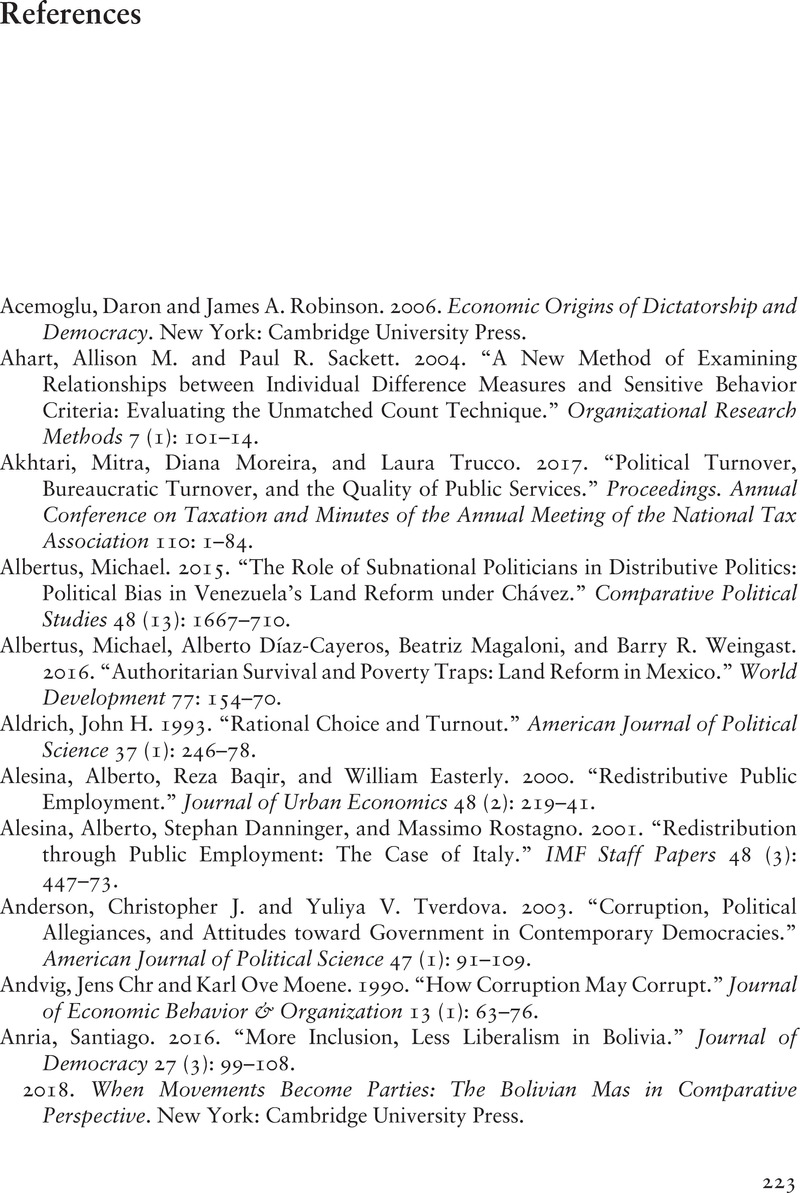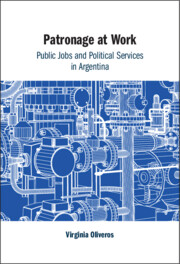Book contents
- Patronage at Work
- Patronage at Work
- Copyright page
- Dedication
- Contents
- Tables
- Figures
- Acknowledgments
- 1 Introduction
- 2 A Theory of Self-Enforcing Patronage
- 3 Getting the Job
- 4 Patronage Contracts and Political Services: Evidence from List Experiments
- 5 Patronage, Favors, and the Personalization of Public Administration
- 6 Self-Enforcing Patronage Contracts
- 7 Beyond the Argentine Case
- 8 Conclusions and Broader Implications
- Appendix
- References
- Index
- References
References
Published online by Cambridge University Press: 18 November 2021
- Patronage at Work
- Patronage at Work
- Copyright page
- Dedication
- Contents
- Tables
- Figures
- Acknowledgments
- 1 Introduction
- 2 A Theory of Self-Enforcing Patronage
- 3 Getting the Job
- 4 Patronage Contracts and Political Services: Evidence from List Experiments
- 5 Patronage, Favors, and the Personalization of Public Administration
- 6 Self-Enforcing Patronage Contracts
- 7 Beyond the Argentine Case
- 8 Conclusions and Broader Implications
- Appendix
- References
- Index
- References
Summary

- Type
- Chapter
- Information
- Patronage at WorkPublic Jobs and Political Services in Argentina, pp. 223 - 243Publisher: Cambridge University PressPrint publication year: 2021



